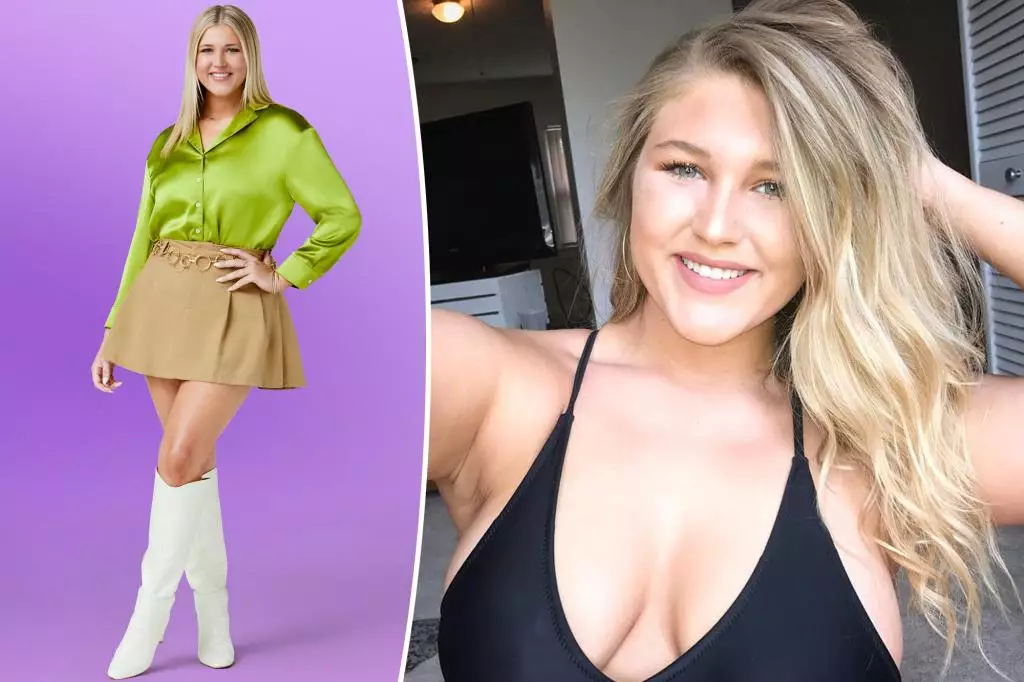Hannah Jiles, a familiar face from Season 7 of the hit Netflix reality series “Love Is Blind,” is making headlines not just for her appearances on the show but also for her candid revelations about her personal transformation. Jiles recently shared her story, shedding light on her weight loss journey, which began long before she stepped into the reality dating environment of the pods. Her candidness highlights the often invisible battles many individuals face regarding body image and self-acceptance.
Jiles’ journey to self-improvement began during a challenging time that many can relate to—the COVID-19 pandemic. As she candidly expressed, the isolation and uncertainties of the pandemic led her to gain weight, ultimately peaking at 220 pounds. The experience is a stark reminder of how external circumstances can trigger emotional eating and weight fluctuations, a struggle many have faced during this tumultuous period.
Before entering “Love Is Blind,” Jiles underwent liposuction as a part of her desire to reshape her body, targeting areas such as her lower abdomen, back, and neck. She revealed that this choice stemmed from a long-standing dissatisfaction with her body, regardless of the scale’s numbers. “I’ve always struggled with my weight,” she admitted. This sentiment resonates with many, illustrating that the journey towards self-acceptance can often be complicated and layered.
The advent of social media has made discussions about body image more visible, yet it has also intensified scrutiny and speculation regarding weight loss methods. After her appearance on the show, many speculated whether Jiles had used popular prescriptions like Ozempic, a medication frequently associated with weight loss. However, Jiles clarified that her experience with it was not favorable, leading to nausea that made it intolerable for her. This narrative exposes a deeper truth: that dieting and weight management are often not as straightforward as they may appear online.
Beyond physical changes, Jiles emphasizes the critical role mental health played in her journey. With the stress of the pandemic exacerbating her emotional eating and anxiety, she sought help, ultimately starting anxiety medication. This decision, she noted, not only supported her mental well-being but also shifted her relationship with food. “I eat to cope,” reflects a common theme in the dialogue surrounding mental health and eating disorders. By addressing her anxiety, Jiles took a step towards dismantling her unhealthy coping mechanisms.
Post-reality show, a revelation hit Jiles: her self-worth should not be tied solely to her physical appearance. “I do love myself, but I do think I could be fitter and healthier,” she remarked. This realization represents a pivotal moment in her journey—a shift from self-criticism to appreciating incremental progress in both her physical and mental health. It emphasizes the importance of viewing wellness as a holistic journey rather than a singular focus on weight.
While Jiles admits she’s not particularly fond of exercise, she has incorporated Pilates into her routine, reflecting a gradual shift towards healthier living. Her experiences point to a broader truth about fitness: it need not be an extreme commitment; rather, small changes can yield significant results. At her current weight of 145 pounds, she embodies progress that resonates with goals set from a place of self-love and care, not mere societal expectations.
Ultimately, Jiles’ story is one of perseverance, reflection, and the pursuit of happiness. Her journey demonstrates that weight loss and health are multifaceted issues influenced by a combination of physical changes, mental well-being, and societal pressures. For her, the road to self-acceptance is ongoing, filled with lessons that extend far beyond the parameters of a television show. As she continues this path, Jiles inspires others to embrace their journeys, reminding us all that the process of loving oneself is just as crucial, if not more so, than the final outcome. Through her honesty and resilience, she becomes a beacon of hope for those navigating their own weight and self-image struggles in a complex world.

